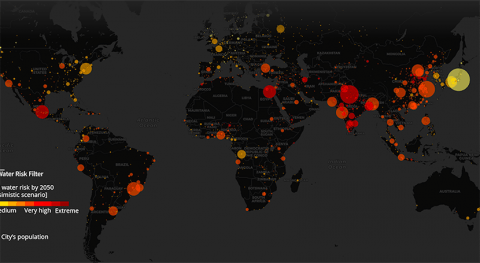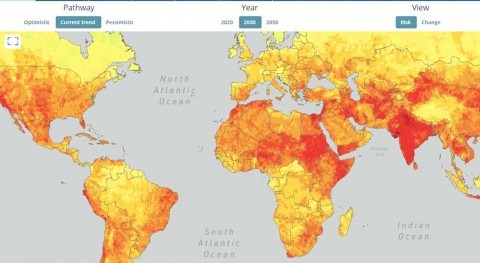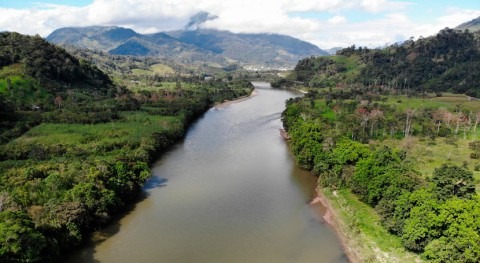“With the economic and financial cost of floods, droughts and other water risks increasing, financial institutions need to take water challenges far more seriously than they have so far,” said Alexis Morgan, WWF Water Stewardship Lead and author of the report. “The financial world must urgently start assessing risks to their portfolios, while also requiring companies to actively mitigate their water risks.”
For the past nine years, the World Economic Forum has ranked water crises in its top 5 global risks by impact, while CDP reported corporate losses of over US$30 billion due to water risks in 2018 alone. From the droughts that materially impacted Europe’s economy to the multi-million dollar impacts of water scarcity in cities like Cape Town and Chennai, water risks are increasingly impacting companies and investors around the globe.
Climate change will only increase the risks since its impacts on societies and economies will primarily and most acutely be felt through water.
“Freshwater species populations have crashed by 83% since 1970: they are the canary in the coal mine, warning us that our priceless freshwater resources are in crisis and that we will soon feel the knock on effects on our societies and economies,” said Stuart Orr, WWF Global Freshwater Lead. “It is high time that investors begin to recognize water risks for what they are: a material issue that needs to be accounted for in the decision making of any modern financial institution.”
The report points out there has been a proliferation of tools and approaches that assign financial numbers to water risks in recent years. To help companies and investors identify the best tool or tools for valuing water depending upon their needs, WWF launched the free Valuing Water Database. Embedded in the Water Risk Filter, the database contains over 100 tools.
“Water is not just about risk, it also represents significant opportunities for investors from the multi-trillion dollar water infrastructure financing gap to new services and products – opportunities that are only likely to grow in the coming decades,” said Morgan.
Along with assessing and valuing water risk, the report calls on financial institutions to mobilize finance to shift business practices, request improvements to the way in which water is handled by ESG data providers and urge regulators to strengthen water-related disclosure requirements.


















